Love it or hate it, it’s impossible to leave the cinema having seen Mandy and not have a strong opinion on the film. This unique, creative piece of filmmaking marks the second feature for Panos Cosmatos, and after a year on the festival circuit, it’s final showing comes in Macau, and Hot Corn were invited to attend, where we spoke about the indelible thriller with the director himself. We speak about the difficult journey the film went on to finally get to the screen, and why he took some convincing to cast Nicolas Cage in the lead role. He also about his working relationship with the late Johann Johannsson and where the idea for Cheddar Goblin came from.
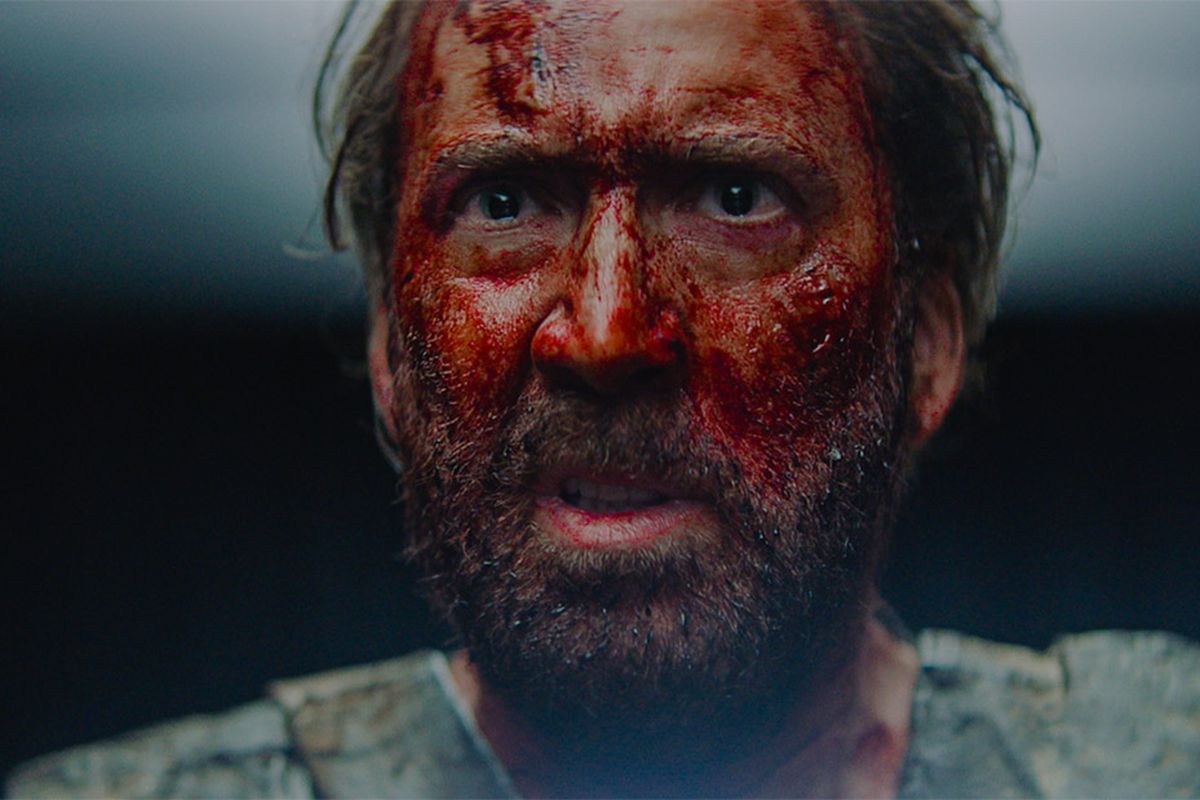
We interviewed Nicolas Cage here in Macau, and he was saying that he was initially offered a different role in the movie, but after he declined you had a dream of him playing Red and subsequently offered him the role?
That’s correct. I had locked on to this idea of him playing the villain and that’s what I wanted to explore with him as an actor, to take him into this dark realm that he’d never fully gone to before, that was my goal, and so when he said he didn’t want to play the part I looked for someone else because at that time I was so zeroed in on this thing I wanted to do with him. Then months later I had a dream that I was watching the finished film of Mandy and he was playing Red and it was so vivid and undeniably compelling and interesting, I knew I could do what I wanted to do with him in the character of Red, which was every bit as interesting.
Did he play the role like he did in your dream?
Somewhat. I changed a couple of things.
Mandy is a few years after your first film – why has it taken so long?
Just me being overly careful. I was worried of getting in to a situation, especially with this film which I felt could be misinterpreted by a lot of producers, and try to be forced into a very generic action movie mould that they thought may be what they were getting, which would lead to a bad situation down the line where they weren’t getting what they wanted from me, or what they expected. So I just wanted to be sure I worked with producers who understood the kind of film I was trying to make intrinsically, and to be in a situation with the financing where they were not gonna mess with that, so it just took a long time for that to fall in place and for all the planets to align, for us to be in a situation where we had just enough money and people who would let me make the movie I wanted to, and it took a long fucking time.
Both films are set in exactly the same year, in 1983, what is it about this particular year that appeals to you as a storyteller?
I mean a lot of the inspiration for both of my films comes from memories and the sort of indefinable kind of feeling of being alive at that time, but really I just look at it as the year that was a signifier for this kind of methodological kind of landscape that these two films exist in.
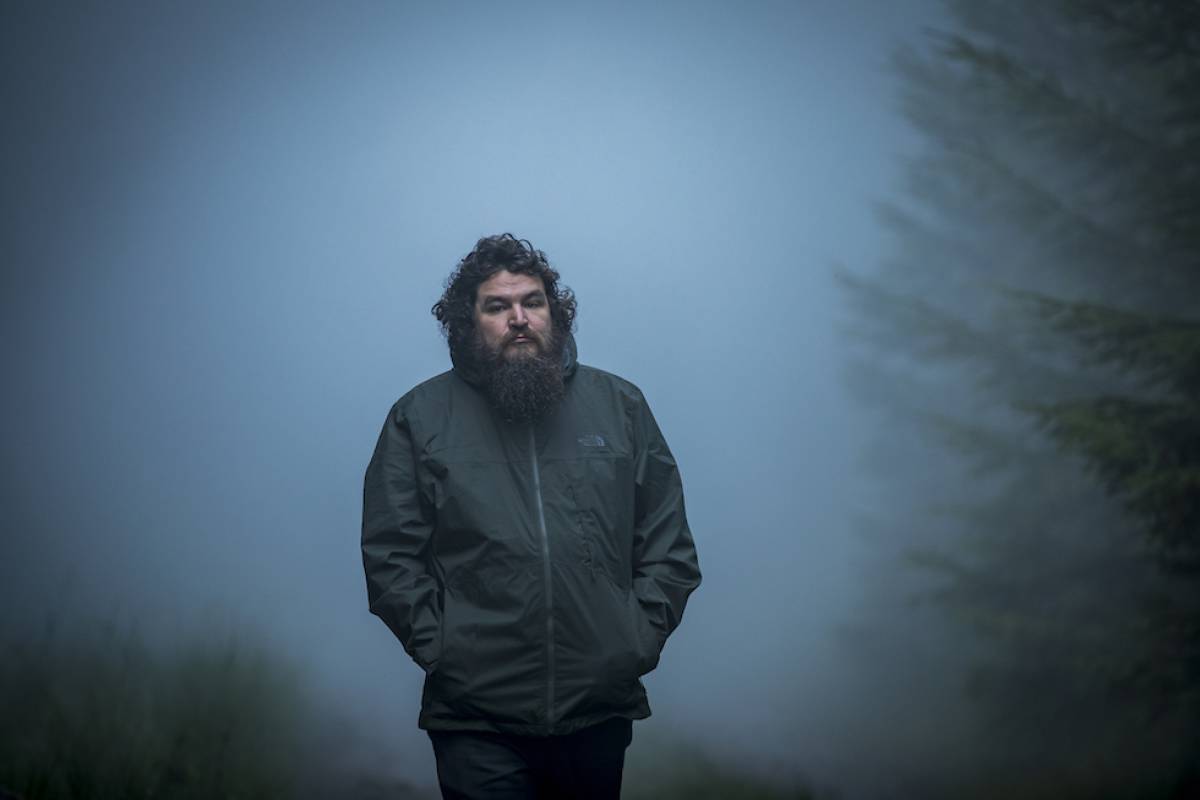
The film has a wonderful score, it must’ve been a real pleasure to work with Johann on this?
I really felt a kinship with him, pretty fast and he’s one of those people that when you meet them you feel as though you’ve known them for a long time. I really thought we’d just started collaborating with this movie, it was very tragic.
Because music is probably the most emotive aspect of film, so with that in mind, and with his score, does it add a certain emotional depth to the feature you hadn’t anticipated when making it?
Well for me personally it gives it a bit of melancholy that wouldn’t have been there otherwise, of course. I think it’s a really beautiful piece of work.
Talking of the film’s emotion, there’s one moving and disturbing scene that stands out, when Nic is wearing his pants and is screaming in the toilet. I remember when watching the film in the cinema and everyone around me was laughing, and it felt like an example of his reputation, and cult following, almost got the better of him, and people misjudged that sequence. When working with someone like Nicolas Cage, does that sort of baggage be frustrating to you at all?
Well I didn’t think about what people were going to think, I just thought about what I wanted to see in the movie and what I wanted to see him do as a performer that was right for the moment in the film. So as a fan of his for basically his entire career, I really admire his ability to go into these expressionistic modes of performance, and as a fan that’s something I wanted to see and I wanted to have in my film. I think the way people react to it depends on their expectation and their own life experiences, you know? If somebody has been where that character has been, they’ve actually had real loss in their lives, and not just seen it on TV, then maybe they connect with that scene in a more immediate, personal way and not just see it as a funny kind of performance. I want people to project their own life experiences onto the film and hopefully it has some sort of therapeutic value on them.
Nicolas said he sees himself as a Klaus Kinski sort of actor…
It’s funny because the first time I met him about playing Sand, he asked me to tell what this character is and I said he’s the ‘Californian Klaus Kinski’ and he paused and then he looked at me and he said, “I am the Californian Klaus Kinski” [laughs]
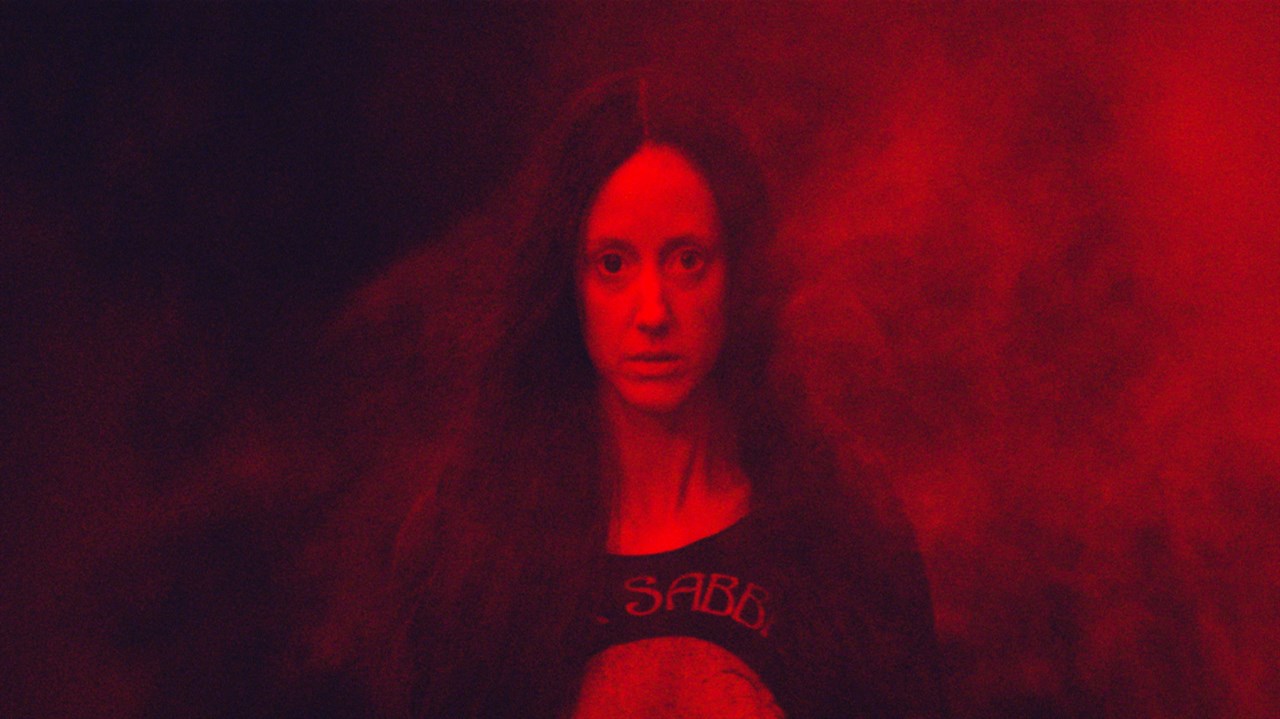
So many of the interviews with you about Mandy have undoubtedly been Nicolas Cage focused, but Andrea Riseborough is exceptional in the movie. She’s a chameleon when it comes to acting.
Yeah, she was my first choice, and I never thought that we were going to get her for some reason, from a distance I saw her as like this sort of Shakespearian actor who was very serious, and she’d look at this script about bikers and acid and stuff and be like, fuck that. But it turned out that she was a fan of Beyond the Black Rainbow and wanted to work with me, which again was a he surprise. But I was so, so thrilled to be able to work with her, she is a chameleon.
On to Cheddar Goblin… Where did that idea come from?
Cheddar Goblin was like, I knew that I wanted something on the TV when he comes in after she dies that was kind of like an outlandish slap in the face. You know when something horrible has happened to you and you have no control over your life or the universe and the first thing you see is something ridiculous that doesn’t give a shit and doesn’t know what’s happened to you, or doesn’t care about you, it’s just there in the world. It’s like the polar opposite to what you just experienced, so initially I was going to use a happy commercial for cereal or something like that, but me and the producer spent so many hours alone in the production office, trying to entertain each other and we ended up sort of riffing on this idea of a goblin that was vomiting mac and cheese, and then at some point we realised maybe that’s what should be on the screen when he gets in. We didn’t have any money or time to do it ourselves, and all of our departments were already stretched and didn’t have the time to make Cheddar Goblin commercials. But we’re both friends with this amazing filmmaker called Casper Kelly who made this short film called Too Many Cooks, which I think is one of the most incredible, surreal and esoteric pieces of filmmaking ever. So we crossed our fingers and we called him, and we offered him a thousand dollars to make a Cheddar Goblin commercial, and he agreed to do it.
I don’t know what it says about me, but I really wanted to try Cheddar Goblin.
Yeah. Mac and cheese is delicious, even if it comes out of a goblin, it’s still good.
Mandy has been on the festival circuit, has it been interesting to you how different audiences from different cultures have responded to the movie? Has there been any audience yet that has surprised you?
I’ve just been surprised by the fact that it’s been responded to positively [laughs]. I didn’t expect the sort of positive reaction that it has got. I thought that it was a little bit more accessible than Beyond the Black Rainbow, so I thought maybe a handful more people would like it than that, which was more difficult a film to get in tune with. But the fact there’s been such a groundswell of audience participation with the film and it’s been selling out midnight shows, one after the other, all over the place, is really interesting to me, that it’s resonating with people in a similar way.
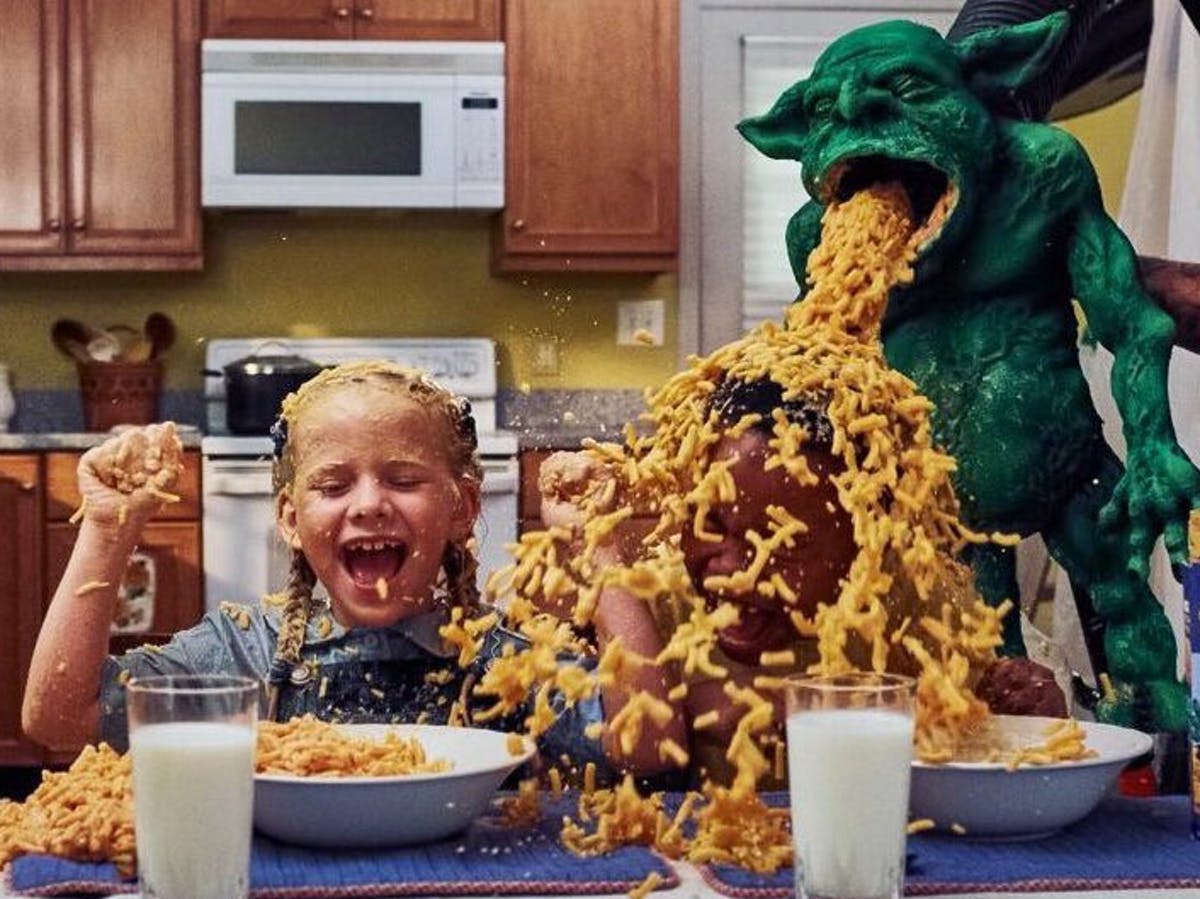
So what’s next?
I have no idea. This is the last festival I’m doing, so I’m going to go home and spend some time with my wife and my cat.
So is this the end of the Mandy experience? I guess the whole thing is prolonged across the course of the press tour, but now that’s over, is that sort of sad for you?
It’s bittersweet, you know. I think the fact people responded positively to the film is still something that hasn’t sunk in with me yet. The reaction to Black Rainbow was relatively muted, and I personally was very happy and proud of the film and over the years people have come to me who love it, but this is a more overt, positive reaction. I’m a really pessimistic person, so I just don’t let myself feel too much pleasure. Maybe in a year or something I’ll be like, oh that went pretty well.
Finally, we have to ask as you mentioned earlier you’re a big fan – what is your favourite Nicolas Cage performance?
Yeah, many, but the one that really made me a lifelong fan of his was Vampire’s Kiss.
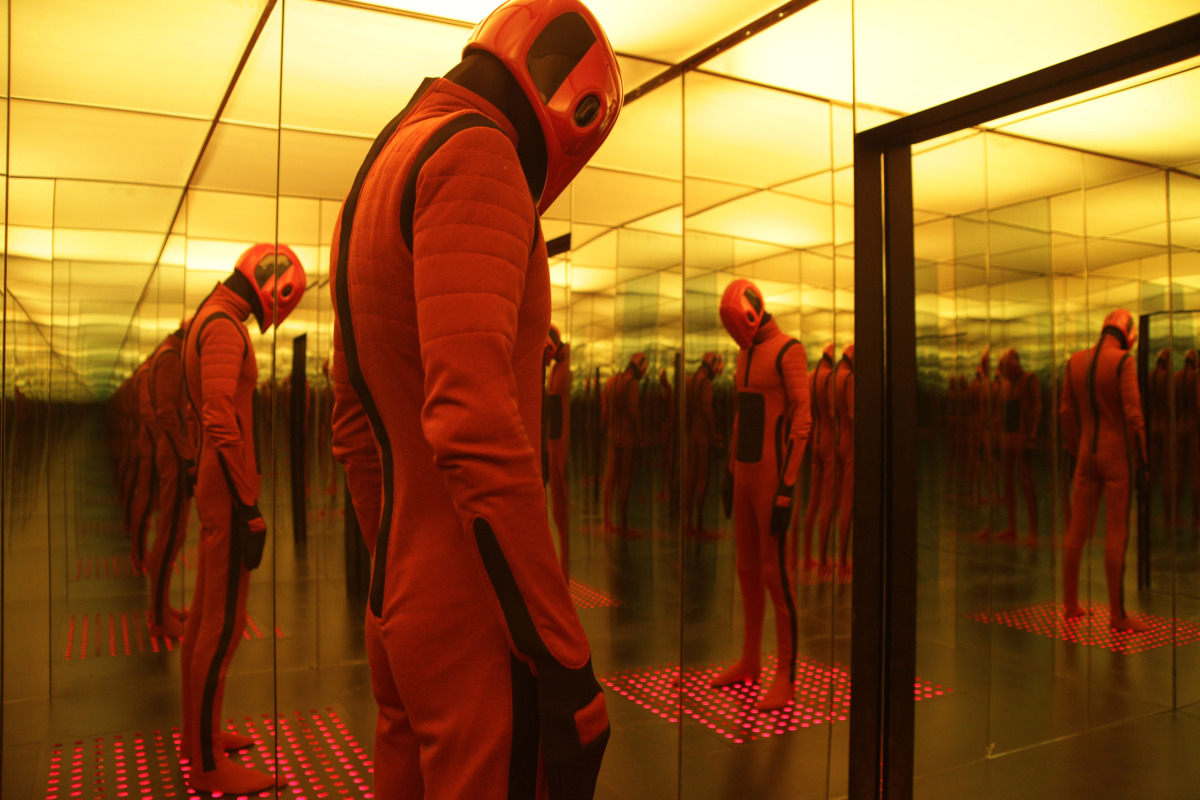

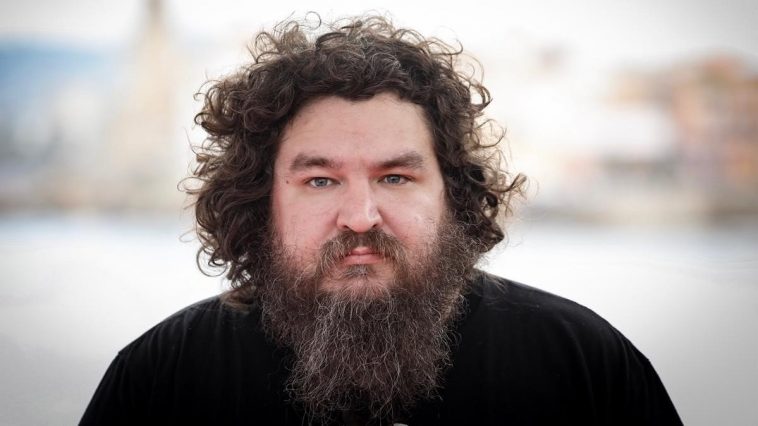




Leave a Comment